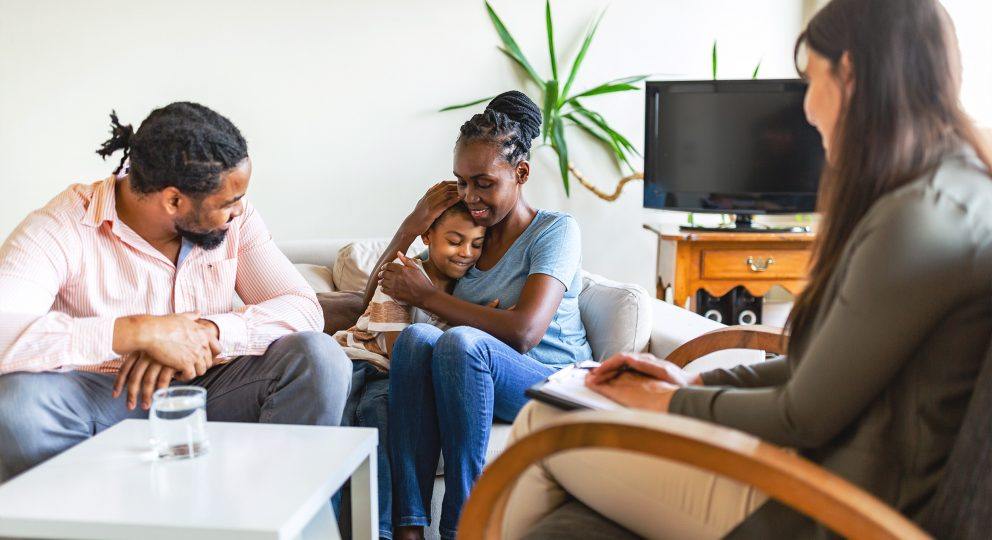So, you have been referred for family therapy by your counselor. Or perhaps you’ve finally reached the end of the constant conflict and started looking for someone to mediate. Either way, family therapy can be new terrain for many people.
Do you feel fear and trepidation that the therapist is going to “nail” you as a bad parent? Are you already convinced that the therapist is going to “fix” your child or your partner? Rest assured, if the therapist is doing their job properly, neither is the goal of family therapy.
So, what can you expect?
First, expect (or look for) a therapist who has training and experience in family therapy. There are a lot of generalists out there who hang up a shingle and profess to treat everything and everybody without specific training or experience in family therapy. That’s not what you’re looking for. You do not go to a general practice physician to treat cancer or diabetes. In the same way, you should not go to a generalist to treat your family. Family therapy is very different from individual therapy and requires specialized training and experience. Your family is precious. That is why it deserves an experienced, well-trained therapist who specializes in family therapy.
Second, expect your family therapist to have a systemic perspective. They will see and work with your family as a system (an interconnected whole). Family therapy is about intervening effectively in relationships. It considers both individual and relational realities. The fundamental design for interventions in family therapy is based on two convictions:
- That the consequences of one person’s decisions and actions can affect the lives of all the people who are significantly related to them.
- That satisfactory relating for one person is inseparable from the responsible consideration of consequences for all of the people to whom he or she is in a significant relationship. (Boszormenyi-Nagy & Krasner, 1986).
Therefore, the family therapist should take into consideration the welfare of all those to whom the identified patient is in a significant relationship, whether they are present in the therapy or not.
Third, expect the family therapist to avoid pathologizing and to focus more on the interactions of the family members than the “identified patient.” Many times, when families come to family therapy, they identify one member as the problem or the patient and just want the therapist to “fix” the problem or the identified patient. That is not how it should work in family therapy. Expect the family therapist to look at the relationships, the interactions, and the communication patterns between the members of the family and to intervene to improve them. The therapist may do so by engaging every member of the family and their perceptions in the process.
Fourth, expect the family therapist to take a strengths-based approach. While you are probably coming to therapy because of what you perceive to be a problem, your family is more than the problem. Your family has strengths and inner resources that need to be brought into play, and your family therapist should help you discover them.
Fifth, expect the family therapist to elicit and pay attention to your emotions. An important principle of family therapy is what we call “state-dependent learning,” the idea that people learn best about emotions when they are in emotional states. Emotions are important in relationships and, therefore, in family therapy. They are not to be ignored or dismissed. Rather, they need to be brought out. Emotions are a privileged place for affecting change in family relationships.
Sixth, expect the family therapist to pay close attention to the stories that you tell about yourselves and to look for unique outcomes. The stories that we tell about ourselves can be limiting or empowering. The family therapist will challenge those stories that are limiting and help to draw out those stories that are empowering.
Finally, expect the family therapist to align with your desire for improved family functioning. There is a concept in family therapy called homeostasis, the idea that family systems work (often against the therapy) to return to their preferred (dysfunctional) reality or configuration. However, Dr. John Gottman suggests that every family has two homeostatic resting places: a dysfunctional and a functional homeostatic point. The job of the family therapist is to align with and to assist you toward your desire for improved family functioning.
Reference
Boszormenyi-Nagy, I., & Krasner, B.R. (1986). Between Give and Take: A Clinical Guide to Contextual Therapy. New York: Brunnel/Mazel.








